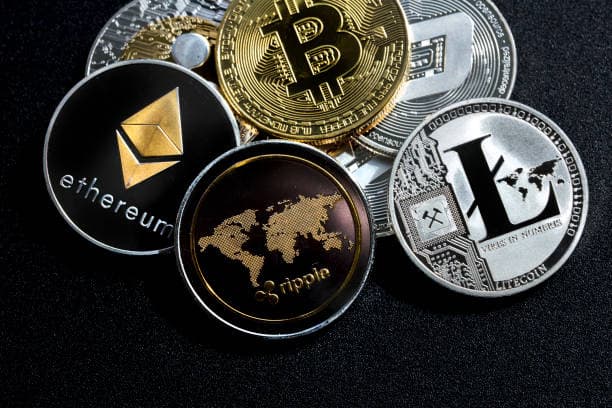Bitcoin is illegal, why don't countries crack down on it?
Bitcoin has become a leader in the global cryptocurrency market and has attracted the attention of numerous investors. Although some countries have not yet fully complied with the legal regulations on cryptocurrencies, and some have even explicitly banned the use or trading of Bitcoin, few countries around the world have actively cracked down on Bitcoin. So why haven't these countries taken decisive action when Bitcoin is illegal? Today, we're going to take a closer look at why.

Background of Bitcoin Violation
Bitcoin was born out of dissatisfaction with the traditional financial system; it is a decentralized digital currency that is not dependent on any government or central bank for control. As a result, many countries were initially ambivalent about it. As the price of Bitcoin has become more volatile, some countries have become concerned about its potential impact on financial stability and monetary policy. Particularly in countries with weak economies, governments are concerned that Bitcoin could become a tool for capital flight, money laundering, or capital hedging, thereby undermining national financial security.
Despite this, Bitcoin is not entirely illegal, and many countries are ambiguous about its legal status. While countries like China have explicitly outlawed Bitcoin trading and mining activities, in other countries Bitcoin is more of a gray area and is not strictly prohibited. In fact, many countries have not banned Bitcoin altogether, but have chosen to control it through regulation.
Conflicting economic interests
The contradiction between the state's economic interest in Bitcoin and the fight against it is one of the reasons why it has not been dealt with forcefully. The decentralized nature of Bitcoin has attracted large amounts of investment capital and has had a profound impact on financial markets and national economies. Many countries have found that the existence of the Bitcoin market has actually brought considerable economic opportunities to their countries, especially in terms of investment, innovation and employment. Countries such as Switzerland, for example, have been early adopters of cryptocurrency-friendly policies as an important way to promote economic development.
Cryptocurrencies themselves have brought about a whole new financial ecosystem. Many applications of blockchain technology have not only facilitated corporate innovation, but have also changed the landscape of global payment systems. Against this backdrop, it is difficult for countries to dismiss the potential value of Bitcoin simply because of the risks it may pose. As a result, many countries have begun to embrace the cryptocurrency market on a regulatory basis, despite the fact that Bitcoin is sometimes perceived as interfering with the current economic order.
Concerns about financial stability
While cryptocurrencies have the advantage of being decentralized and borderless, they also carry a number of risks. The price of Bitcoin fluctuates dramatically, and the way it is traded can easily become a breeding ground for illegal activities. Whether it's money laundering, fraud or black market trading, Bitcoin can be used to circumvent regulations and laws. Governments are often hesitant to crack down on Bitcoin due to uncertainty.

The anonymity of Bitcoin's transactions, despite its high level of transparency, makes it difficult to trace some illegal behavior. Although the market size of Bitcoin is huge, its relative novelty and unpredictability make it necessary for many countries to take more time to study and assess its possible consequences before taking strong measures. Therefore, despite the fact that Bitcoin may, to a certain extent, jeopardize a country's financial stability, the current international regulatory system is not yet fully developed, leaving countries with no choice but to adopt a more conservative attitude.
International Cooperation and Regulatory Challenges
The multinational and decentralized nature of Bitcoin poses a huge challenge to international cooperation and regulation. Each country has a different attitude and legal framework towards Bitcoin, which makes the regulation and governance of cryptocurrencies globally extremely complex. For example, the regulatory policies on Bitcoin in the European Union (EU) and the United States (US) are quite different. While the U.S. has adopted a relatively open attitude toward cryptocurrencies, it has also stepped up controls on the risk of money laundering, while the EU has been more cautious in advancing legislation.
Since Bitcoin transactions are not subject to the laws of a single country, a unilateral ban on Bitcoin in a particular country would not be sufficient to effectively stop its circulation. This is one of the reasons why some countries have chosen to wait and see and gradually strengthen their regulation instead of cracking down on Bitcoin right from the start. Especially with the growing number of cross-border transactions, international collaboration and policy integration are becoming more and more urgent.
Why don't countries crack down on Bitcoin?
Based on the current situation, there are several reasons why Bitcoin has not been strongly cracked down on despite being illegal in some countries:
Decentralized nature is difficult to control: Bitcoin does not rely on a centralized institution, which makes it difficult for countries to intervene directly. Even if a country bans Bitcoin trading, users can still trade anonymously.
Financial Innovation and Economic Opportunity: Many countries recognize the innovation opportunities presented by cryptocurrencies and want to capitalize on them to attract investment and create jobs. Countries such as Switzerland and Singapore are open to cryptocurrencies and are gradually introducing legalization and regulatory policies.
Regulation is still being explored: Although certain behaviors in Bitcoin trading are illegal, cryptocurrency regulation on a global scale is still in its infancy. Governments and international organizations are working together to find a balance that protects financial stability without unduly stifling technological innovation.
Frequently Asked Questions Q&A
Q1: Why do countries have such different attitudes towards Bitcoin?
A1: The legal framework for Bitcoin varies from country to country, with some countries emphasizing its financial stability and others valuing the innovation and economic opportunities that cryptocurrencies can bring, resulting in a wide range of policy directions.
Q2: Is Bitcoin legal in Taiwan?
A2: In Taiwan, Bitcoin is not considered legal tender, but it is legal as a commodity or asset. The Taiwan government does not have a total ban on Bitcoin trading at this time, but there are regulatory policies in place.
Q3: How can I avoid legal risks if I am in a country where Bitcoin is banned?
A3: If you are in a country where Bitcoin is banned, the best thing to do is to avoid participating in Bitcoin trading or mining activities and follow local laws and regulations to avoid possible legal risks.














